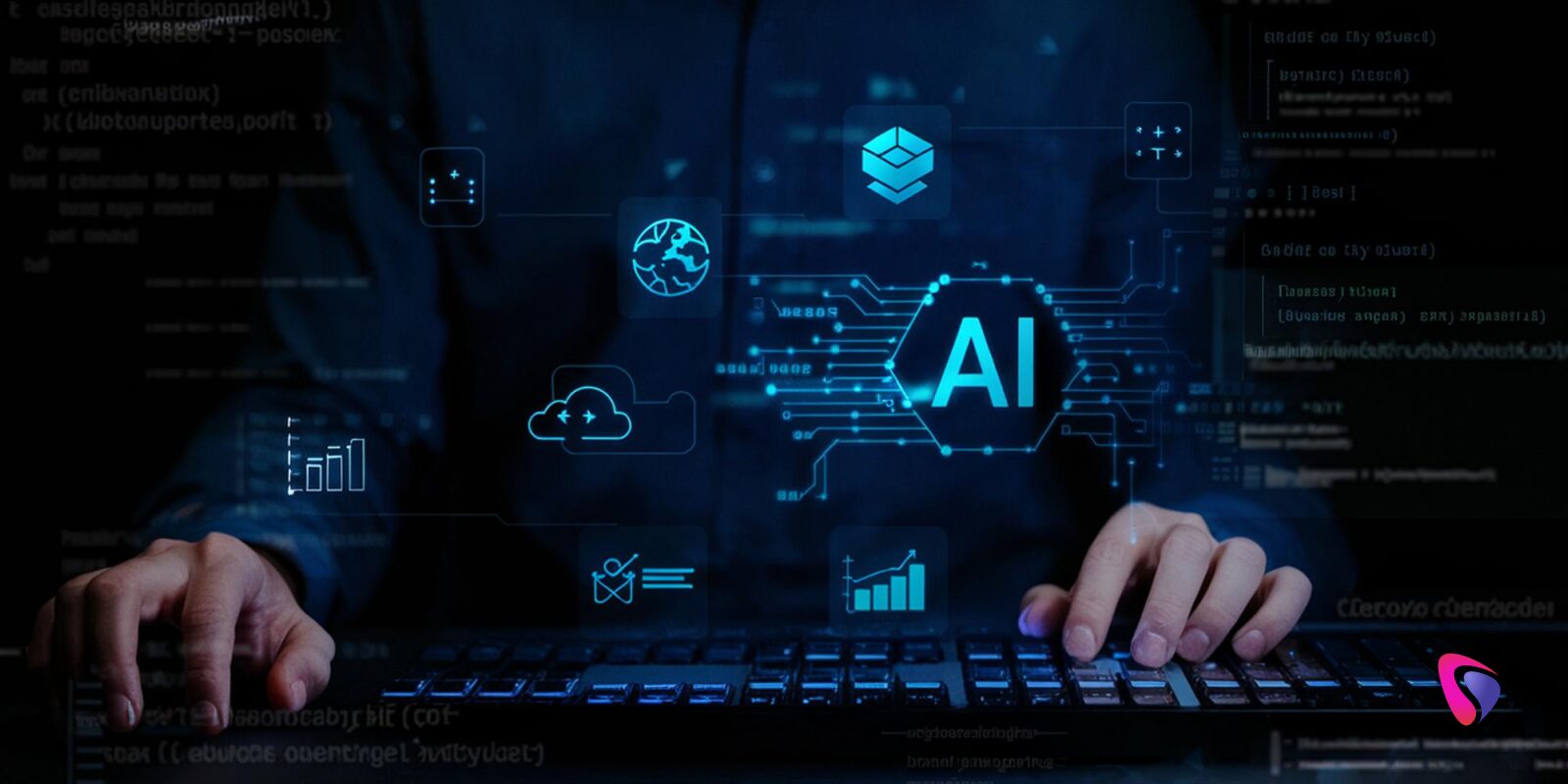
Writing and reviewing code were purely human tasks until now. Long working hours, struggling with bugs, and a constant battle with deadlines. This whole scenario is changing because of AI coding agents. Corporations didn't take much time in adapting AI coding agents and integrating them into their daily work.
Let me say, these free AI coding agents do not just constitute another wave of "helpful tools" for the developer. These belong to what is growing into a movement called agentic AI in software development-an AI system that does not just act when given a command, but can also understand the objective, take initiative, and work with humans almost as if it were another team member.
Notions of distrust about AI doing even coding tasks washed away, giving way to a full acceptance of its competitive advantage. Reports indicate a steep increase in the enterprise adoption of AI coding tools as businesses realize how much of their time, money, and brainpower can be saved with no trade-off in quality. For many enterprises, the coming of these agents feels less like a software upgrade and more like having an entire development team overnight.
The corporate world is not just using these tools now, it's relying on them. It is no longer a question that AI coding agents will influence software development or not, because it's going to change it.
What Are AI Coding Agents?
At first glance, the term AI coding agents might sound just like a fancy way of saying "AI chatbot for developers." But there's so much more to it! While vanilla AI chatbots generate answers or chunks of text in response to questions or prompts, coding agents are meant to act. They can understand project objectives, interpret complex requirements, and get down to task completion, often with little human intervention.
It is like the stark difference between asking a friend for advice and working alongside someone who is willing to get their hands dirty for job completion. So a chatbot would advise you on how to write a sorting algorithm, while coding agents will get in there and write, test, and refine that algorithm, often before you have even finished with your first cup of coffee.
The real breakthrough lies in the so-called agentic AI in software development, wherein the tools cease to be passive and instead acquire a sense of autonomy. These AI coding agents are allowed to make decisions and act according to the required situation. You just have to command them like "add a new authentication feature", which means that they have to plan, code, develop, debug, and integrate this feature without any human handling. Their core strength is that they can generate full-functional code from given raw data and requirements, and can also find and resolve bugs, all on their own, seamlessly into existing code.
Essentially, agentic AI tools for developers grow from mere supportive assistants into active partners within the software development process. They never seek to replace human creativity or judgment but rather free the developer to innovate, architect, and solve problems while the agents take care of every repetitive task and do most of the heavy lifting.
The Technology Behind AI Coding Agents
Behind the smooth exteriors of AI coding agents is an intricate internal architecture geared to think, plan, and act much like an experienced software engineer. Nowadays, most agentic AI developer tools are based on large language models (LLMs) trained on all the code and documentation one can find. These models are generally fine-tuned on domain-specific datasets so that they may understand not merely common programming logic but the finer points of various industries and tech stacks.
To improve trustworthiness or reliability, reinforcement learning (a mechanism by which an AI evolves through feedback commenting on the quality and efficiency of its outputs) is frequently put to the test. It is this very process that enables AI code-generation agents to gain a degree of autonomy in changing their coding style, to suit the standards already established by a company, or to foresee the developer's expectations.
Contextual awareness is one of their important capabilities. These agents comprehend the project architecture, adhere to coding patterns, and maintain consistency in large-scale applications by analyzing entire repositories rather than isolated files. Hence, they do not engage in isolated code snippet activities but become a part of the bigger canvas without disrupting the project flow.
GitHub Copilot Reviewer currently provides automated feedback on pull requests, Cursor BugBot seeks out and fixes errors with very little supervision, and CodeRabbit offers comprehensive code review support. This gives a couple of examples of how agentic AI is evolving from simple code assistants to fully integrated development partners.
Enterprise Adoption of AI Coding Tools
The once experimental concept has now turned into a fast track to becoming corporate standard. AI coding tools adoption by enterprises increased by a fair measure, with an interplay of competing pressures alongside actual results. Industry reports have given evidence to the increase in usage across all sizes of organizations, skyrocketing from niche deployments to mainstream integration in a matter of months.
Each and every sector is now adapting AI for their software. Such software helps them in simplifying mundane tasks, accelerating product rollouts, matching market demands, and streamlining continuous delivery pipelines. Fewer development hours and even fewer errors result in cost and time savings. In countless boardrooms, this generation shift is no longer being classified as a future possibility; AI coding agents are already operating daily and have begun to shape technology as enterprises build and deliver.
Core Use Cases in Corporate Software Development
AI-Powered Code Review
Code reviewing is one of the very important steps in any software development lifecycle. It is, however, tedious and often inconsistent when done wholly by humans. AI code review tools change this by scanning pull requests, analyzing logic, and adherence to coding standards, thereby finding potential bugs that exist before merging the code. Therefore, either during their manual review sessions or on their own, teams utilizing AI can ensure really subtle problems like an edge case error or security vulnerability go unchecked. This flow guarantees the highest software quality and fastens the reviewing process, with the developers setting their focus on solving more creative problems rather than reviewing every line of code.
AI Code Generation Agents
Tasks that are highly repetitive, such as writing boilerplate code, setting up database models, or generating API endpoints, tend to slow down development timelines. The AI code generation agents were developed to absorb the boredom of coding and churn out neat, working code within seconds. These agents can install themselves into IDEs popular among developers and into continuous integration/continuous delivery (CI/CD) pipelines. This way, the generated code does not require refactoring to fit perfectly within the existing project structure. Commendably, such aids save time for developers and also instill a unified style into large projects, making it less likely for errors to occur due to manual repetition. In turn, this allows the developers to spend their productive time actualizing more complex features that demand human insight.
Corporate Automation with AI Agents
The AI agents' role in corporate software development is increasingly becoming more complicated, beyond writing and reviewing codes, etc. In many organizations, agents handle documenting, generating test scripts, running automated testing suites, monitoring system performance, or even handling deployments. This end-to-end automation ensures there are no bottlenecks/jams traditionally present from coding, testing, and releasing software. Likewise, it ensures that workflows remain smooth even when teams grow larger or projects grow more complicated. Now, for Enterprises, this translates into faster time-to-market, efficient collaboration among teams, and a reduction of a huge amount of repetitive manual work that dents morale.
Benefits of Using AI Coding Agents in Enterprises
1. Faster Development Cycles
For the corporate software industry, time is usually the most expensive resource. With the help of AI-based coding systems, the development cycle can be shortened by carrying out rote and mechanical programming tasks that slow teams down. These AI agents create boilerplate codes, fill in a common function template, automate the generation of unit tests-for example-getting through the routine tasks so that programmers can jump directly to high-value work in their projects. That hastens the updates from enterprises, fast-tracking shift change in markets, thereby giving teams an established pace of releases to work with.
2. Improved Software Quality
One of the greatest strengths of AI programming agents is their ability to enforce coding standards and detect problems and concerns before they grow to costly bugs. These agents constantly scan the code for inconsistencies, syntax errors, security-focused loopholes, and even logical errors that might slip past a manual review. Issues no longer have to be detected at the end-stage testing: enterprises can start catching issues in the development process itself. This results in cleaner, maintainable code and stops wasting the precious working hours on post-release fixes or patches.
3. Reduced Developer Workload and Burnout
Developers need to do repetitive tasks every day, from writing code to fixing bugs, and project documentation; they never end. This constant switching between tasks drains developers' energy and creativity. AI coding agents take care of such tasks so that developers can dedicate their skills to solving complex technical problems and designing new features. This is how teams experience less burnout, which directly impacts long-term productivity.
4. Scalability in Large Projects
It is a logistical challenge to scale development operations for large enterprises managing multiple projects in parallel. Most of the times, this requires a big overhead of time and manpower: coordinate efforts across distributed teams, maintain code integrity, and assure smooth integrations. AI coding agents help enforce the same standards across teams in all things, coordinate and automate integration checks, and keep them aligned with the company's official coding standards. This creates favorable conditions for teams to scale while quickly onboarding new developers if need be, thus allowing growth without the creation of disorder in the code base. As time goes on, this structure will accelerate fixed delivery and improve the credibility of the overall software portfolio maintained by the company.
Challenges and Risks
Security Concerns: Data Leaks and Dependency Risks
Just as with any new technology, implementing AI coding agents has security trade-offs. They typically require deep penetration into an organization's source code and internal repositories. If access is not closely monitored, sensitive information, proprietary algorithms, or even confidential client data might be compromised. The problem does not stop there; lots of AI solutions are based on third-party APIs or libraries, which can themselves be vulnerable. Worst-case, a dependency might be compromised, and that vulnerability spreads into production systems. The risk can only be minimised by dint of strict governance, secure integration points, encrypted communication channels, and constant auditing to make sure nothing slips through the cracks.
Code Ownership and Intellectual Property Challenges
The issue of who owns code written by an AI remains a gray zone in most of the world. Corporate environments find this vagueness a pain. When an AI model is trained on public code bases, it is possible that its output can mirror licensed or copyrighted work. Although this could be coincidental, the overlap might lead to legal issues. For businesses, it means establishing strong policies, monitoring the provenance of code produced, ensuring it can be licensed to pass compliance checks, and being in close communication with legal departments to prevent intellectual property lawsuits from arising.
Over-Reliance on Automation Leading to Skill Gaps
One can't argue the point that AI can accelerate development, but excessive use can erode a team's technical advantage. If developers rely too much on an AI to perform repetitive or difficult tasks, over time their skills at problem-solving from first principles will atrophy. This is a problem if the AI generates buggy code, makes unsafe assumptions, or simply isn't there for a specific project. To prevent this, companies should use AI as an assistant, not a replacement. Fostering hands-on coding, peer reviews, and tech workshops can keep teams sharp while still enjoying the benefits of automation.
Best Practices for Implementing Agentic AI in Software Development
If you’re thinking about adding AI to your development workflow, don't directly throw it at your employees and developers to use. Start small — maybe use it for tidying up repetitive code or drafting a few basic test cases. That gives everyone time to figure out what it’s good at and where it tends to stumble.
Also, resist the temptation to let it handle everything, especially the tricky or sensitive stuff. AI can be quick, but it’s not a mind reader. Anything tied to security, money, or critical business processes should still have a human double-checking it. Think of it as the same caution you’d take with a new junior dev — trust, but verify.
Another point people overlook: training your team. If you don't know how to use the tool, then it can be a real problem; it can turn into a slow app or a complex app that nobody wants to use. Take and give time to learn how this works, experiment with such AI models, and explore.
And review the AI’s output regularly. Not just once when you set it up — I mean every so often, especially early on. You might spot strange logic, subtle bugs, or even licensing issues buried in generated snippets. Catching that early keeps headaches small.
Done right, Agentic AI should feel like an extra set of hands in the room — fast, capable, but still working under your guidance. You’re not replacing people; you’re just making sure they’ve got a smart assistant that plays well with the team.
The Future of Agentic AI Tools for Developers
Right now, AI coding agents are more like handy co-pilots; they help you get from point A to point B faster, but they still need you in the driver’s seat. Fast forward a few years, though, and we’ll probably see them taking on much bigger roles. It’s not a stretch to imagine AI spinning up entire app features from just a short brief, or even managing small-scale projects with minimal human oversight.
Some folks believe we might eventually have “AI-only” teams, basically a fleet of agents working together to design, code, test, and deploy software, with humans just setting the goals and reviewing the results. That’s exciting and a little intimidating.
Of course, the tech side isn’t the only thing to think about. There’s the question of ethics and governance: who’s responsible if AI-generated code fails in production or contains security flaws? How do you make sure the AI respects licensing, avoids bias, and sticks to the company’s coding standards? Those are conversations we’ll have to keep having as the tech matures.
If history’s any guide, AI tools will keep getting faster, smarter, and more integrated into everyday development. The trick will be using them in a way that actually makes teams stronger, not just faster. After all, the future isn’t about replacing developers, it’s about making sure the tools work with them, not instead of them.
Conclusion
Agentic AI is no longer just a buzzword in software development, it’s actively changing how companies write, test, and deploy code. From speeding up development cycles to reducing the day-to-day grind for developers, these tools are starting to feel less like experiments and more like essential parts of the workflow.
That said, the opportunities come with their share of risks. Security gaps, unclear ownership of AI-generated code, and the danger of teams losing core skills can’t be ignored. The most successful enterprises will be the ones that embrace AI without blindly depending on it, keeping human oversight, setting clear governance rules, and training their teams to adapt.
The message is simple: AI-driven development is coming fast, and the companies that prepare now will be in the best position to benefit. The choice isn’t whether to adopt agentic AI, but how to do it in a way that strengthens your team and safeguards your business. Contact our AI Development Team to discuss your enterprise needs.
FAQs
1. What is Agentic AI in software development?
Agentic AI refers to AI systems that can take initiative, make decisions, and execute coding tasks with minimal human intervention. These tools can analyze requirements, write code, run tests, and even suggest architecture improvements.
2. How is Agentic AI different from traditional AI-assisted coding tools?
Traditional AI tools typically act reactively, responding to prompts or specific tasks. Agentic AI, on the other hand, works proactively, planning and executing a series of steps towards a goal, often without continuous developer input.
3. What are the main risks of using Agentic AI for coding?
The key risks include potential security vulnerabilities, unclear code ownership, bias in AI-generated solutions, and over-reliance on automated decision-making without proper human oversight.
4. Can Agentic AI replace entire development teams?
While future advancements may allow AI agents to handle more of the development lifecycle, complete replacement of human teams is unlikely in the near term. Human creativity, domain expertise, and ethical judgment will still be crucial.


















